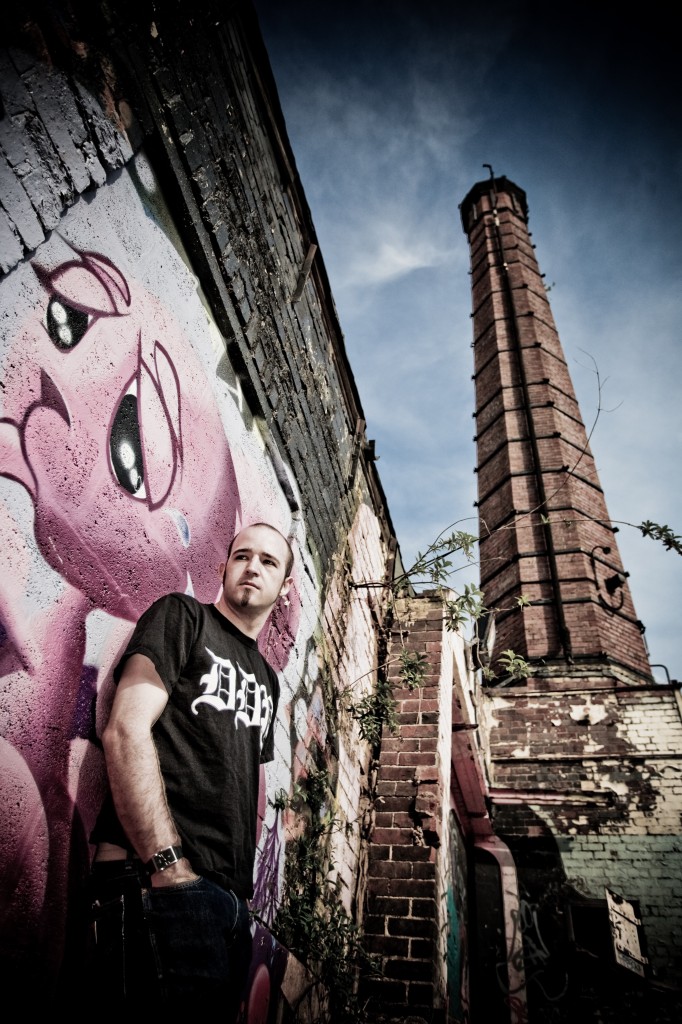The Linux world is preparing for Ubuntu 12.04 LTS official release to use and evaluate the next “big” version of the world’s most successful Linux distribution. Much has been said about the last Ubuntu versions and Canonical’s strategies. Many expressed delight with the new technologies introduced lately by Canonical, while others expressed disappointment with some of the changes. This week, we talk to Jono Bacon who is the community manager of Ubuntu, in an attempt to disentangle the thoughts of the linux users community, and understand how a big community is organized and guided the Ubuntu way.
I am not sure if I would count myself as a celebrity in any world. 🙂
My name is Jono Bacon and I work as the Ubuntu Community Manager at Canonical. I lead a team of five to grow and optimize the global Ubuntu community and create a rewarding environment for everyone who participates. I joined Canonical after meeting Mark Shuttleworth a few times at a few events and inviting him to keynote an event I used to run with some friends called LugRadio Live. At the time I was working as an Open Source consultant for the UK government-funded OpenAdvantage and the project was coming to an end, and this is when Mark informed me of the role. I applied and was delighted to be chosen.
Well, all jobs are stressful in one way or another. I am not going to deny that there is always a lot going on in Ubuntu; the community is large and constantly growing, and Ubuntu is a very visible project with a lot of public interest. This visibility means that everyone has an opinion or viewpoint on what we do. In many cases these viewpoints can be supportive and in some cases they are critical. Added to this is that we in the Ubuntu project (and Canonical) are never afraid to take on a challenge with the goal of making Ubuntu better, easier to use, more powerful, and be the best solution for our users. This means that sometimes some feathers get ruffled in the community. I have always been something of an optimist and fairly thick skinned, so the stress doesn’t hit me all that often, and I have such a wonderful community to work within that my work feels more rewarding than stressful.
When I joined Canonical it was just me doing community management. Of course, many of our developers were actively engaging with the community on a daily basis, but I was on my own in terms of optimizing community strategy and growth. As such, my primary limitation back then was the amount of time I had each day to serve our different parts of the community. Fortunately, back then the community was smaller and thus I could spread myself around a little easier.
These days our community has grown significantly. As an example we have over 150 local user groups, 150+ uploaders, 17000+ translators, 1million+ forums members, and millions of Ubuntu users all around the world. To help handle this growth and scale my team has grown and the different members of the team focus on different parts of the community.
From a collaborative perspective, things work pretty well between Canonical and the wider Ubuntu community because Canonical are simply one part of the community. I have always seen Ubuntu as a shared commons and Canonical are an entity that invests in that commons. As such we expect Canonical staff members to work transparently and openly with the community. In the vast majority of cases this happens (some projects are private for customers, so this is a little more restrictive). As such, staff members work within the same collaborative infrastructure and governance as anyone else.
In terms of balancing Canonical’s goals and the community, this generally works effectively too as Canonical’s goals are focused on the success of Ubuntu. As such, Canonical invests in making Ubuntu better and this improves Ubuntu for everyone and brings motivation and morale in the community.
Ubuntu 12.04 is definitely a key milestone, and I believe it will be one of the most important releases in Ubuntu’s history. A few years back we made some changes that in my mind culturally changed Ubuntu from more of a “project” (collection of parts that fit together) to a “product” (building something that serves user experiences and problems). Ubuntu 12.04 has a quite considerable amount of design thinking involved which is a result of user testing, feedback and more. I think the result is a more integrated, consistent experience.
We also invested extensively in Quality Assurance in the Ubuntu 12.04 release cycle. We implemented gated trunks, acceptance criteria, automated testing, community testing growth and governance, and more. The result of these efforts is a level of quality I think you can really *feel* in Ubuntu 12.04.
In terms of success or failure though, while I am confident that Ubuntu 12.04 will be a hit with our current and new users, we are not betting the farm on it. We have a path towards the next LTS, Ubuntu 14.04, and we are going to continue to grow, evolve, and make Ubuntu the leading software platform across the desktop and cloud.
Canonical is certainly not turning it’s back on our existing community, but what we are doing is doing our best to build Ubuntu in a way that it brings software freedom to *everyone*.
Traditionally, Ubuntu has been the platform of choice for Linux enthusiasts. We have worked hard to build something that *just works* and delivers an integrated and powerful software experience. We did this by collecting together the best pieces of Open Source software and integrating them together into a cohesive experience. We continue to do this today; Ubuntu 12.04 will present the cream of the crop in the Open Source world available both on the disc and in the Ubuntu Software Center.
At Canonical we have always tried to bring innovation to Ubuntu. Even back in the early days of Ubuntu 4.10 Warty Warthog, Ubuntu shipped next-generation stacks (such as Project Utopia) to bring the benefits of this work to our users right away. The challenge with innovation is that innovation fundamentally challenges the norm and in a distributed community this sometimes causes some concerns in our more conservative community members. There are some parts of our community that would be quite happy with us focusing our efforts in making software primarily of interest to Linux enthusiasts and/or purely shipping GNOME 2.x for years and merely revving the applications in each release.
This in my mind defeats the ethos and philosophy of Ubuntu. When we started this journey we set out to create “Linux for Human Beings” and to build Ubuntu for everyone. This means being reactive to the needs of our users, and challenging ourselves in the applicability of our software to different demographics. We know Ubuntu is popular with Linux enthusiasts, but how well does it work for consumers? How about education and schools? What about children with disabilities? What about gamers? Each of these different demographics have different needs and requirements and we want to build something that everyone can love, feel a connection to, and feel part of.
The continued evolution of Ubuntu has focused on lowering the bar and making it useful for a wide variety of users, including Linux enthusiasts, general consumers and more. This has involved us really listening to our users and asking some tough questions about how we do things and how we can improve. None of this has changed the core values of Ubuntu…Free Software for everyone, in your language, and irrespective of disability, and we continue to work in a very transparent and open community. Of course, some folks will claim Ubuntu is ignoring their needs, but I can’t think of any functionality that has been *removed*, we have just not made some of it default and chosen software that is of the widest general interest; other options can be found in the Ubuntu Software Center.
When I got involved with Ubuntu years ago I was excited about the opportunity of bringing software freedom to *everyone* and I believe that Ubuntu is the best opportunity we have to do this.
There has indeed been lots going on. We are exploring the TV story more and more, and are continuing to be interested in Ubuntu on convergent devices and tablets. The key focus with these devices is building something that a hardware partner can work with us on to ship. While we coordinate these arrangements we will continue to grow the core parts of Ubuntu to meet these different form factors such as Unity and uTouch.
I don’t think people are moving away from the desktop. We read all of these articles talking about the death of the desktop due to the phone and tablet; well all of those articles were written on desktops. 🙂 My view is that these different devices have different primary use cases.
In terms of contributions moving away from the desktops, our community is strong and continues to thrive, so I see no sign of that happening.
In the wider distribution context, I do see things moving around more and more. Distributions have to be competitive otherwise they end up only meeting specific use-cases. For many distros this is fine, that is their goal, but for more general distros they need to be of wider general interest to keep their users happy, and I think this is an area where Ubuntu will continue to innovate.
I don’t think we have lost. There is no such thing as a winner and loser; the market is too pliable and malleable. Things change, opportunities and risks change, but I believe there is huge opportunity out there for Ubuntu; we are building a sleek, elegant, and powerful desktop environment, and I think this will continue to grow in interest outside of our immediate community.
The Severed Fifth experiment was a lot of fun to try. In it we put together a live band, released two demos, raised $5000 from the community to record an album, released the album, and we have seen more and more people using Severed Fifth music in their own creative works. The project has definitely demonstrated that a Creative Commons license is motivating for people to participate and feel part of the project: I would strongly recommend it for musicians and bands.
I am really interested in Government. I think it would be interesting to build collaborative community around local communities; this is an area where I think tremendous good could be made. I would love to look into that at some point in the future.
Our focus right now is on application developers, quality, and growing participation. Application developers are essential in delivering value to the platform, and we are going to continue to grow and ease how app devs can use Ubuntu as an interesting and rewarding platform. We also want to continue growing a quality community to ensure that Ubuntu remains something that we are all proud of. Finally, we want to lower the bar for participation so everyone can contribute their skills and passion to Ubuntu and make it better for everyone.
Thanks Jono! Everyone stay tuned cause next Monday comes another very interesting interview…






